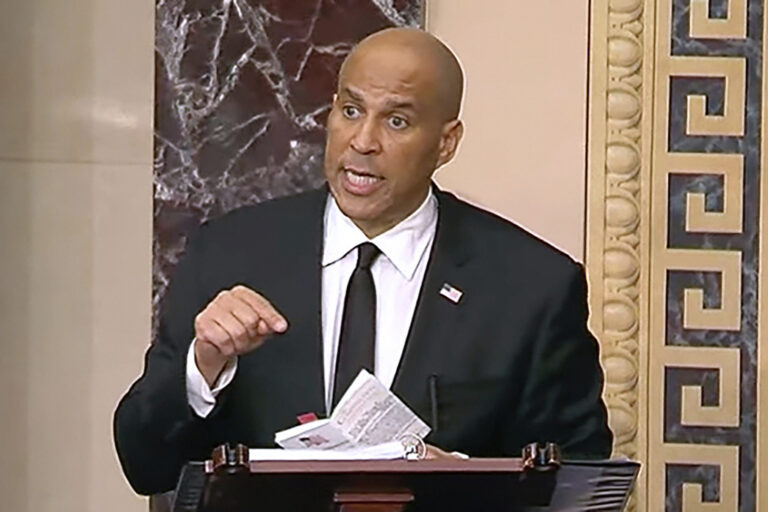 The recent unfortunate incident which occurred in the Catskills, and drinking in Shuls on Shabbos, has sadly made it into Newsweek in the following article:
The recent unfortunate incident which occurred in the Catskills, and drinking in Shuls on Shabbos, has sadly made it into Newsweek in the following article:
It was a Saturday afternoon in July, and according to the police report, the young man was driving drunk. So drunk, in fact, that he drove into the oncoming lane, rolled his car, crashed into a cottage and then tried to flee the scene on foot. It’s a sad but not surprising story—except for the details: the driver was an Orthodox Jew, vacationing in the Catskills. It was Sabbath, and he was wasted. Milton Berle was echoing the generations-old conventional wisdom when he quipped that “Jews don’t drink much because it interferes with their suffering.” Except, of course, they do. Orthodox Jews especially have started to wrestle with what some say is a growing problem of alcohol abuse in their communities. Editorialists in Jewish papers and blogs wring their hands over the college students who wind up in the emergency room after over-imbibing on Purim or the men who leave Saturday services en masse to tipple in the cloakroom before returning, rowdy and indecorous, to the sanctuary in time for the sermon. In 2005, the Orthodox Union (which oversees the nation’s Orthodox synagogues) issued a strong statement against these “kiddush clubs.” “They were drinking not only the [ceremonial] kiddush wine, but fine single-malt whiskey with a sumptuous smorgasbord,” says Rabbi Dr. Tzvi Hersh Weinreb, executive vice president of the Orthodox Union. “It’s not only drinking, it’s idealized drinking, which is a very, very bad message for the kids.” Many synagogues have since curtailed the clubs, he says.
Alcohol problems always carry a stigma, but in Orthodox circles that stigma is particularly constraining. “Everybody’s looking at each other and thinking, ‘Is this a family I want my son or daughter to marry into?’ ” explains Jonathan Katz, director of a New York City-based group for Jewish alcoholics and addicts called JACS. That’s why, Rabbi Weinreb says, some Orthodox drinkers go to Alcoholics Anonymous groups in church basements, where they won’t see anyone they know. But other Jewish drinkers like to deal with their problem among their own. JACS offers 12-step groups, and a Jewish-only rehab center in Los Angeles called Beit T’shuva includes Jewish spirituality in its recovery program. Young men in rabbinical training at the Yeshivat Chovevei Torah and elsewhere take alcohol-awareness seminars, and in November, JACS published a book of confessional essays about alcohol by Jewish women.
The truth is, though, that Jews don’t drink—much. Historically, Jews have not had alcohol problems to the extent as some other religious groups—only 11 percent of Jewish men have problems with alcohol abuse and dependence, compared with 28 percent of non-Jewish men. Researchers aren’t sure why, but point to a possible combination of factors. It could be that Jews, who for generations have lived as guests in a host country, feel pressure to be “on our best behavior,” as Katz puts it. It could be that rigorous religious observance inoculates people against drunkenness—shown to be true across religions. Or it could be genetic: some Jews do have a form of a gene, also common in Asians, which can protect against alcohol abuse.
Weinreb says he sees drunkenness much more often these days, especially among younger people who think nothing of bringing a six-pack to a party. New research is beginning to support the rabbi’s worries: young Jews do seem to be more vulnerable to alcohol than their parents. A 2007 study showed that Israelis younger than 33, especially those without the protective gene, are much more likely to engage in excessive drinking than those who are older. Small studies on recent Russian immigrants in Israel and Jewish college students in the United States show that under the right kind of environmental circumstances, some Jews do engage in heavy drinking. For anyone who’s ever been to a bar or a college campus, that’s hardly a headline.
(Source: Newsweek)











55 Responses
Even now everyone is quite.
No one wants to talk about how the american velt is becoming more and more, well, american.
sad to see.
hopefully now the rabonim will Asser [prohibit] All alcohol at kiddushim. [other than the riviis for the kiddush cup!
So there you have it…a Chillul Hashem of the first order! Let’s keep on stressing how big your yarmulke should be, whether a white on white shirt is good enough, how the chulent should be made and the likes of that. Why teach kids Hilchos Geneiva, Chillul Hashem, Lashon Harah U’rechilus, Honesty, Courtesy & the likes? It would make no sense, right? Well here you have it!
This article only proves that Newsweek is racist. this story isn’t news at all it happens 1000 times a day in every town in America the only reason they printed it is because this time it was a Jew, this article should make us happy the fact that t was printed shows how great we are not what problems we have. And to Newsweek we all see you for who you are racist budgeted anti Semites
Jews use alcohol responsibly as part of their religious services (i.e. Kiddush, Havdala) so its not seen as an escape but rather as a religious tool.
My goodness, what a Chillul Hashem.
hi
is it possible that it made it to Newsweek because of it being published on your site. Not everything that takes place should be aired in a public forum. The chilul Hashem is far worse than any benefit.
thanks
My goodness! And I thought smoking was the only issue!!
Wonderful.
I guess a nice thing that did come out of this article is that since they wrote “the Orthodox Union (which oversees the nation’s Orthodox synagogues)”, when, of course, there are many orthodox synagogues in the nation that are not under the OU’s aegis, at least it looks like the leadership of every orthodox synagogue has come out against the drinking, which is still likely true, though the OU’s role is, somewhat, overstated.
I did not realize the incident they referred to was a yid. What a tragedy! Being so drunk that he forgot it was Shabbos.
Of course most people I have heard comment on this inyan all say the same thing – couldnt happen to me – which is also a shame. We need to learn from these stories and see what it is that we need to do in our lives to avoid these issues.
We need to realize that this is a problem and granted we may not have the same problems as other people, we do have issues that should be addressed somehow.
Kudos to the outreach organizations and yeshivas that actually do address them however perhaps it is time that the more “mainstream” yeshivas and orgs come out “officially” against alcohol (as well as smoking & drug) use.
Remember USE is part of ABUSE.
lechaim to all those hosts who have these boys over for meals. They find it entertaining to watch them get wasted and then just send them on their way, not knowing if they will make it back to where they are staying… or r’l not
Scotch, with its smokiness, is about the single most unhealthy liquid there is to consume. We live in a society where everything is available 24 hours a day, and there is money in peoples’ pcokets.
What’s next gambling and drugs?
Oh, that’s a problem already….
Thank you R Weinreb for your confirmation to all that was written. It is truly wonderful that newsweek can quote a “big” rabbi confirming all that was written. While this may be a growing issue, it need not be in newsweek and unfortunately the call to fame for some, takes precedence over whether it will be a chillul hashem to have such a write-up.
No Eric55 (#5)
You are wrong. Dead wrong.
I do not approve of Newsweek for other reasons. However in regard to this article they are not Anti Semites.
If what Newsweek is alleging is true, (and trust me, people in the know have told me that it is)
Why don’t you want to know the truth?
Are you alleging that THE Yeshiva World is antisemitic because they printed those two letters about the horrible things that took place at a Shul kiddush on Shabbos a while back.
(ed please post link)
Of Course not.
Lman Yishme’uh Vi’Yeruyoo V’Loi Yezeedu Od.
Maybe if people would wake up to this problem. It would be discussed and then and only then would it be dealt with properly and hopefuly we will never see such articles in Yeshiva World and or Newsweek.
Mr. Eric: being a Frum Yid comes with a peckel.
A good peckel. We have to be on our best behavior. AT ALL TIMES. At work Or vacation. Or it is a Chillul H-shem.
They say over in the name of Rav Yaakov Kamenetzky ZTZ’L That when he was among goyim on a train or subway he said that the fact that he wears a frock is a gevalidege achrayus for how his behaviour should be interpreted.
Halevay we should come to a small % of that madreiguh.
The Newsweek article underscores this point. it is not Anti Anything.
Notice how they picked this up from articles and frum blogs not from real evidence. So the chilul hashem is who’s fault? Not everything has to be printed. Remember EMOR M’AT VAASEH HARBEH
I do not understand why it is any less of a chillul hashem for Yeshiva World to post this article…. is it publicizing a chillul hashem and dont tell me they are doing it to make us jews aware of the problem because it seems from the posts that EVERYONE is aware of it so tell me what is the point of posting this article????
no reason to judge but all must be vigilant on giving divrei tochacha to those who you may suspect could be giving to the yetzer hara r”l
#15, How can you blankedly accuse R’ Weinreb of a “call to fame” and to being the cause of a chillul Hashem? That is very possibly motezei shem ra.
The Newsweek article writes that this was from a statement issued by the OU in 2005. They could have found these quotes from a blog, a statement or an article from a Jewish publication. I would bet that he didn’t offer up these quotes to a Newsweek interviewer.
Shame on you.
To Eric55-
this is just the kind of idiotic attitude that got this story into Newsweek in the first place. Don’t face our problems head on, just cry anti-semitism and everything will be okay?!
WAKE UP!
The question is, how do we get our kids to act responsibly, even if Tatteh doesn’t? There is a program out there that deals with just this kind of issue, designed for teens & it works in & out of the schools. You can reach Bechirot (an appropriate name!)on 718 362 9008. And no, I’m not on the Board, but Dr. Benzion Twerski is.
why the shock that newspapers can moniter Jewish news websites and use it when they deem it useful and interesting for their readers and agenda?
The story about the Lakewood slumlords somehow mutated to the Asbury Park Press as well.
The problem is simple:You don’t take yourself serious enough.
The cat is out of the bag.
They all know already where to find the inside info in the orthodox jewish community.
As my grandmother always said: “A naar massert oif zich alein”
The Rov that permitts this is a zero Rov,guttless shame to Yiddishkiete
OK pretty sad when ‘hoche’ach to’cheach’ must come from the outside. Let’s mention the unfortunate picture of alcohol at many Friday night tishes and the culture of drinking that many of the boys learn while away in Israel. Blame Newsweek? Hide your head in the sand in denial.
5, It is not anti-semitism, but on the contrary, a valid recognition that as the Am HaShem, we are supposed to be above this sort of thing. As the Ramban says, it is possible to gorge on permitted things and become a “naval b’rshus haTorah.” Unfortunately, this time it led to chillul Shabbos and Chillul HaShem.
We will always be singled out, because we are unique. Don’t brush it aside as anti-semitism.
15 maybe it’s damage control.
unbelaevable at least we dont have this problem in the yeshivisha croud or the chasidisha croud eather
Eric (#4),
You’re a sick and twisted puppy. They report the facts… and we unfortunately know it all to well. Time to start deviating from the norm and stop serving an over abundance of this at our Simchas. We need to tackle the issue head on and consider it’s long term affects.
I am going to express a theory. I surmise that someone from our very own community sent in this article as a way of publicizing it and shaming, Chas V’Shalom the rabbis to do something. I don’t know if it will work. I wish though the camps would put their foot down about the Friday night beer and chulent parties.
Di rebbe hut doch gezugt nit mer vi fir? Feh! Der bochur zohl fun zich shemen!
Hopefully this teaches them the lesson that needed to be taught. What an embarrassment….
to #5:
It is really pity that the community has people like you, who can only see antisemites and not the truth hitting you in the face.
As an educator, I know this problem first hand, unfortunately, and it is serious. Accusing anyone who dares write about the community of antysemitism is like burying your head in the sand, or getting drunk to avoid thnking about your problems.
#4- You are in the dark this is a problem in our community I see it every Shabbos and by a weekday Simcha in Monsey NY!! we need to tackle this NOW!
To #2.
(although well meaning) this is the typical useless approach- “ban alcohol” not going to happen and not going to work. As #3 was alluding, we’re too busy with “Chi-tzoin-ious”. We have people living unfocoused lives with little direction, both Balie battim and bochorim.
We need lots of Kiruv keroivim.
it takes Newsweek to give us mussar about drinking, it takes Dov Hikind to give mussar about child abuse, it takes the Asbury newspaper to give us mussar about slumlords etc. etc.
when is mussar going to come from our own rabbonim about these issues.
I love all these yeshivas that have a mussar seder but what are these bochurim actually learning. smoking, drinking, gambling and abuse are all problems in our society but are all being swept under the carpet.Over the years I have seen people get shikur at a kiddush and their friends had to shlep them home in front of their kids. some were very funny when drunk but more often they were mean drunks and took out there anger on their wives and kids. I have seen the effects smoking has had on people and the picture is not pretty. I dare anyone to say smoking is good for you even if it does calm your nerves for a few minutes. I have seen the effects of gambling. How many marriages and homes have been lost due to this issue. I have seen the results of children that were abused by family friends and even worse rabbonim. Is it a wonder we have so many kids off the derech.
We have plenty of rabbonim willing to speak out against concerts,and Woodbourne and other such issues but when it comes to tackling the real problems everyone passes the buck.
I also think that YW reporting the incident led Newsweek to report it.
iluvtorah- maybe if you loved emes, you could actually be an important part in helping to do something about a serious problem. As a nurse in the ER and ICU in the frum community- sorry to say- underage drinking is a serious problem, and how sad that it takes newsweek to come out with this, because the finer news sources like yeshivaworld.com is condemned for even having the chutzpah to mention that it could be an issue we need to address. Well, now the pacificts are to blame. They could have listened when yeshivaworld and the roshei yeshivah talked about it. but they did not. So now newsweek is saying it. what will it take for people to listen?
What a chillul Hashem. I think it’s precisely for this reason (an article like this printed in a major news publication) that YWN did not report this story when it happened.
HAMAVDIL BEIN KODESH KICHOL
CHATOSEINU WHO YIMCHOL
ZAREINU VCHASPEINU YARBE KACHOL
KAKCHOVIM BALAYLA…..
to #34 iib001…so go ahead and tackle it, let us know the results.
FInally the community will wake up, so glad that Newsweek ran the story and hope it hits all the papers, then and only then will we wake up and save the children.
#34 Where in Monsey?????????????????? I chalange you!Drunkedness?
“Or it could be genetic: some Jews do have a form of a gene, also common in Asians, which can protect against alcohol abuse.”
The theory is also that cultures who have been in contact with alcohol longer have in a Darwinian sense knocked out those with the gene (Sam Goldberg 2,000 years ago dies from alcohol overdose).
Italians and Jews have the4 lowest incidence. Native Americans who have only been in contact with alcohol for a few hundred years have this highest rate.
Of course it seems that shame and emotional pain, is the TRUE mediating factor.
if he was orthodox, why was he driving on a saturday afternoon? duh
the real problem in my opinion is not the drinking but rather the attitude that has permitted it.when one embeds the concept that we are tora jews 24/7, then we dont do certain things period. However when we constantly tout “dont be critical” then its everyone for himself and no one may complain about anybodys behavior. It is time to wake up and recognize that being a jew is not a 9-5 job
I was in a camp where the lifegaurds became drunk. The head lifegaurd was told not to come back again the following year, obviously the one who started it all with the beer. The director of the camp made a speech for about 20 minutes about no alcoholic beverages allowed. PERIOD. This was 12 years ago.
I have two teenagers in the Catskills this summer. Not only have we discussed drinking (which is illegal for them, as they are underage) but what to do if you find youself among drinkers by mistake. Also how to get back to your camp if the people you came with are drinking. Parents have to help their kids deal with these potential pressures and situations. If each family would watch and watch out for their own sons and daughters, I think the need for “community” action would be much less.
I wonder how much of kids ‘at-risk’ behavior happens on Shabbos afternoons while their fathers are sleeping off a five-shot kiddush.
We can not be blind to the problem. These terrible things show up in Newsweek only because they exist. Instead of blaming newsweek, let us look at ourselves and see what can WE do. Im ein ani li, mi li? If we can’t do it by ourselves, who can help? JACS? Rabonim? Psiquiatrists? Lectures? Authors? Let us start looking for solutions NOW, before Mincha today! After we find a way to interfere positively, newsweek will show that we attacked the problem and won!
to eric55 #4
Newsweek is not racist. News papers print chidushim, things that are common place do not get reported, that is why this story was signled out
How did a plug get in there for Chovevei Torah? They are a shadow organization bent on undermining our Torah life, this story sounds like a plant from their people.
We can debate whether or not this was a chillul Hashem for YWN to report (I vote for the not) but that is not the point. That if a guy who was drunk (as possibly frum since he was drunk his thought process may have been just as impared as his driving)makes it to the news, then we have a problem. B’H not every shul and not every bungalow colony have this problem, but I think that if we are one of the lucky ones that are responsible to curtail the problem, we know of places that do not. Drinking is a problem as well as many others. Yes as repported in the story we have a smaller percentage than other groups, but it doesn’t make it any less of a problem.
In our shul after a few kids were get tippsy from the “kiddush club” our shul made is assur to have any liquor from that point on. (with the exception of light wine in small amounts) After that we lost a few members in protest but it bought on the realization that there were other issues that needed focus (kids at risk) and this was the beginning of many positive changes. All is not perfect but we see a big change between how the adults and teens interact now.
In our home we use alcohol to enhance the seuda. As my kids know there are limits for everyone (guest and family alike) of how much you can drink. When the limit is met the bottle goes away, period. The best thing that ever happened when we were by a family simcha with an abundant amount of alcohol and I told my kids that while I can’t speak up for everyone I expect them to keep the limit (for them it would have been 1/2 cup of wine / 3 oz limit) while I kept to mine. A few others did not have such limits, became drunk, started speaking in a rude and vile way to others and caused the wife of the bal simcha to leave in tears. My kids on thier own came to me and told me they see how good it is to have limits.
We as a klal must speak up. The people who abuse the limits don’t ralize the harm they are causing to their kids and community. Many people who suffer may not wish to speak up if they are in the minority. Kids need to see that adults can get together and make a change for the good of all. So if you want to blame YWN and the rest of, us please go right ahead. But before you put your head back in the sand put the booze away.
Instead of trying to solve real issues in our community it’s blame the messenger and sweep everything under the carpet. Pretend the problem doesn’t exist. About half the comments are about why the incident shouldn’t have been written about. To some, the Chillul HaShem is not that lives and families are being ruined by alcoholism, but that it’s actually being discussed.
#41- I do my share by not having more then one shot of alcohol it is up to the Rabbi’s of each Shul to apply some type of policy that would prevent members walking home drunk.
#43- Not sure what type of challenge you are challenging me with?
I just want to make a correction to the article, where it states “has sadly made it into Newsweek in the following article”
I am not sad it made it into Newsweek. I am glad, so that this issue can be made public and community leaders will be compelled to do something about it. 13 year olds drinking at a kiddush is unacceptable and against the law. Drinkers of legal age getting wasted on shaboos, yomtov and purim should be banned, and this story will now force people to take a stand against this destructive practice.
I am the Clinical Director for Bechiros, an organization mentioned earlier in this blog. Once we have been mentioned I feel compelled to make a follow up comment.
The boy who is the subject of this article, (although I don’t know who he is), is probably not a bad kid; and although he is responsible for his choices and their consequences, I can understand what led him there. My thought is that this young man was not drinking to become drunk. He was not drinking in order to crash. The sad truth is he may have been drinking in order to feel normal.
Looking through this blog we seem to be looking for someplace to shoulder the blame for this tragedy and all the others it represents. From the Rabbanim to Newsweek someone is to blame. I ask you to take a break from that for a minute. Let’s pause from finding the culprit, and take a minute to understand the problem.
In all the years of work that I have done with youth “going off the derech” I have never met one who wants less spirituality, or less connection to his family. They all want more. It seems what we are offering isn’t doing it for them. That does not mean that what we do offer is bad nor does it mean the child is sick it means it doesn’t work for them.
Ask yourself some questions. What does my child do when he/ she feels inadequate? What does he/she do when pressure builds so high they can’t take it anymore? How do they cope during the times when their friends seem to be better at something? What can my child do when the standards set for him or her feel too high.
We need to admit two things:
1) We as children and adults have all experienced situations like the ones above. We have all had times when we don’t feel great about ourselves, or we feel out of place. We all have had the times when we feel the pressure is too much. How do our children learn to cope?
2) The second admission is harder to admit. We no longer have the ability to shelter our children from outside forces. The ills society has as a whole our children are exposed to. I can guarantee you that your high school child will be exposed to drugs, gambling and alcohol; NO MATTER WHAT YESHIVA THEY GO TO.
This is not a commentary on the yeshiva in, it is a fact in the world today. Even if you have managed to keep the tv and internet out of the house. At this point these activities are wide spread and being done in the streets. The only question left is how your child will react when he or she is exposed to it. What will they do when a different way of dealing with stress, peer pressure, sadness, lethargy, inadequacy, and a plethora of more negative emotions is being offered?
This blog has so far been about what to do about the alcohol, the drugs, the gambling, and all the other at risk behaviors. There is nothing we can do about them. They have entered our society and they are not going away. The real question should be; what to do with our children. How do we teach them how to cope so they don’t need to choose those behaviors? Not just generic midos and coping skills, but skills needed by our specific children.
At Bechiros we have a saying: Before a child is a kid at risk he is just a kid, we would like to keep it that way.
For more information about Bechiros or to contact me directly please contact: 718-362-9008 or [email protected]